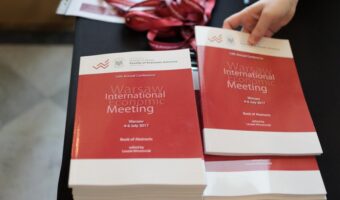The conference is organised annually by the Faculty of Economic Sciences (the University of Warsaw) in cooperation with CenEA – Center for Economic Analysis. It is an ideal opportunity to exchange experience between researchers and to stimulate cooperation between young economists from Poland and abroad. The 12th edition of the Meeting was held on July 4-6, 2017.
The Keynote Lecture in Honour of Leonid Hurwicz was delivered by Professor Rachel Griffith (University of Manchester) who discussed self-control and temptation in food purchases. Griffith emphasised that although there exists a vast economic literature on consumers having self-control problems (concerning, but not limited to food consumption) and preferring immediate gratification, little is known about the extent of these self-control problems: how large are they and whom they concern the most? Before showing the results of empirical research that answered these questions, the professor introduced the idea of ‘internalities’ – the shortsightedness of consumers who do not consider their future selves (e.g. future health) and thus their choices, for their own good, may need to be corrected by government.
The second Keynote Lecture was delivered by Professor Jan Fagerberg (Univerisity of Oslo), who talked about innovation policy. Professor Fagerberg underlined the need of policy coordination in governing innovation systems, with strong involvement of policy leadership. A vision for the future, according to Fagerberg, might be soft coordination, but to avoid being too “top down”, the process of developing such a vision might profitably engage a broad range of actors, e.g. policy-makers at different levels, public sector organisations, NGOs, businesses and the wider public.
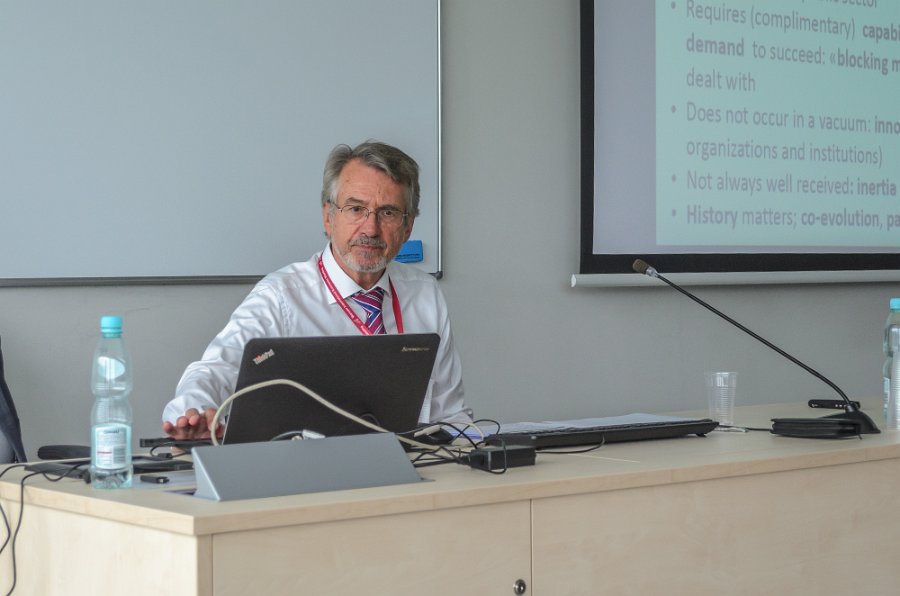
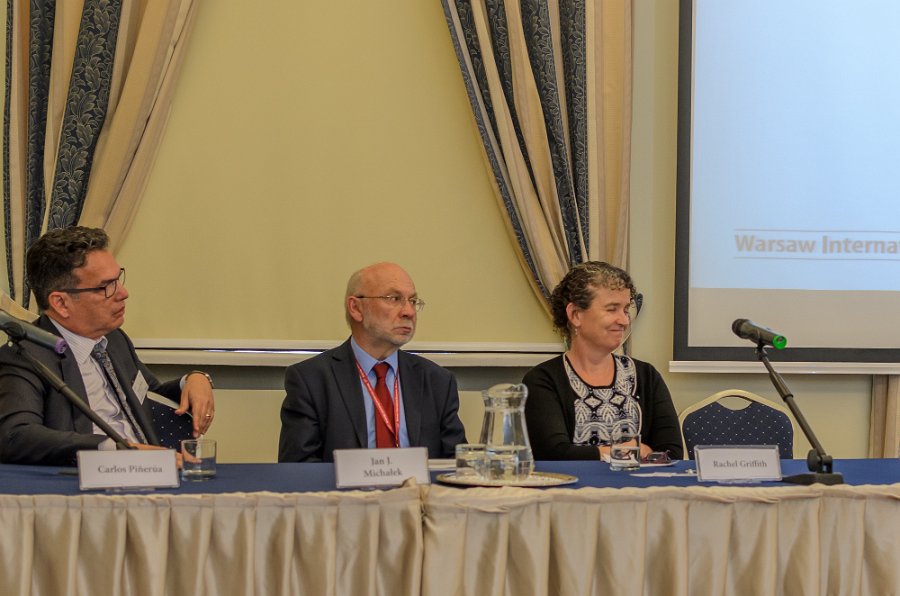
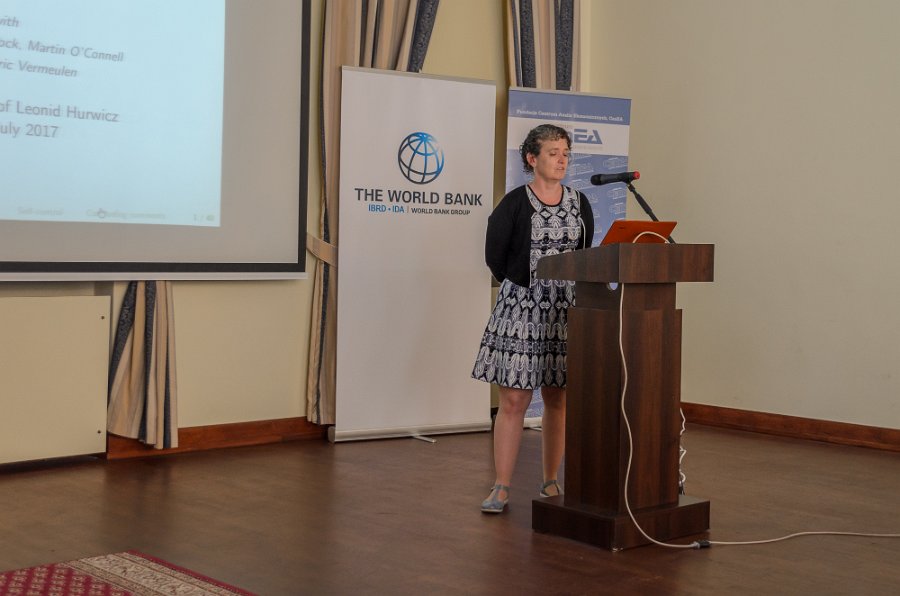
photos: Leszek Wincenciak
The results of research conducted in the Institute for Structural Research (IBS) were presented by nine economists. Below you can find short summaries and presentations.
The Effectiveness of Youth Employment Initiative in Poland

Jan Baran discussed the effectiveness of Youth Employment Initiative in Poland based on counterfactual analysis conducted together with Wojciech Hardy (IBS) and Henryk Kalinowski (IMAPP) (report). The results show that the initiative has a positive impact on unemployed youth, significantly increasing their chances of leaving the unemployment register. Higher effectiveness is identified for individuals in an unfavourable labour market situation: long-term unemployed, living in rural areas, and individuals with previous unemployment spells in the past.
Gender Wage Gap: Does It Matter When Your Firm Was Set Up? The Case of Four European Post-Transition Countries
Ewa Cukrowska-Torzewska presented results from a joint work with Iga Magda, in which they examine the link between the size of the gender pay gap and workplace characteristics, and firms’ age in particular. Their research covered four CEE transition economies: Poland, Hungary, Czech and Slovak Republic. The results show that the size of the gender pay gap depends on firms’ age and it is significantly lower among younger firms, especially those operating in the private sector. This finding is in line with the competition hypothesis, meaning that younger firms are not in a position to treat workers who share similar characteristics differently with respect to pay. The highest gender pay gap is observed in old firms, which started operating before the structural changes. Interestingly, this link does not appear to hold in Western European countries.
Within-Firm and Between-Firm Drivers of Wage Inequality in Central and Eastern Europe
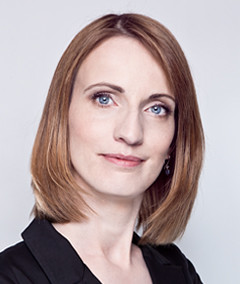
Iga Magda presented early results of her joint work with Simone Moriconi on changes in wage dispersion and their determinants in CEE countries in the 2000s . She showed the convergence in the degree of wage inequality among CEE countries between 2002 and 2010. Most of the observed changes in wage dispersion were associated with the between-firm share of inequality, which increased in low inequality countries and decreased in high inequality ones. The levels of within firm wage inequality decreased in the majority of CEE countries in the 2000s, which was likely driven by institutional adjustments (EU accession and wage adjustment accompanying the Great Recession). Microeconometric decomposition suggested that changes in both the structure of workers with respect to their individual characteristics – and the wage returns to these characteristics were inequality increasing, and these were the firm level characteristics that played a major role.
Routine and ageing? The Intergenerational Divide in the Deroutinisation of Jobs in Europe
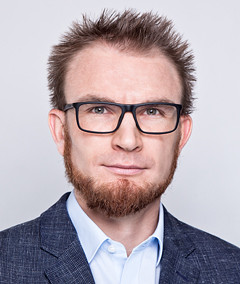
Piotr Lewandowski presented a paper written together with Roma Keister, Wojciech Hardy and Szymon Górka (article). The paper analyses the age dimension of changes in the task composition of jobs in 12 European countries between 1998 and 2014. Piotr Lewandowski showed that the shift away from routine work and toward non-routine work occurred much faster among workers born between 1970 and 1989 than among workers born between 1950 and 1969. In the majority of countries, the ageing of the workforce occurred more quickly in occupations that were initially more routine-intensive, as the share of young workers in these occupations was declining.
Parental Time Spent With Children And Job Flexibility
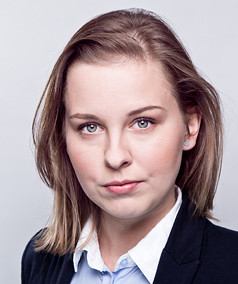
Roma Keister presented the study conducted together with Iga Magda on the relationship between parental employment status, their job flexibility and the amount of time they spend with children. She showed that labour market status as such is not an important predictor of the amount of time parents devote to educational activities with children. Socio-economic background measured by educational attainment of parents, or their own parental background, is much more important. She also stressed that having a more or less flexible job does not affect the amount of time working parents spend with their children on educational activities.
Brace Yourselves, Pirates Are Coming!
The Long-term Effects of Game of Thrones Leak on TV Viewership
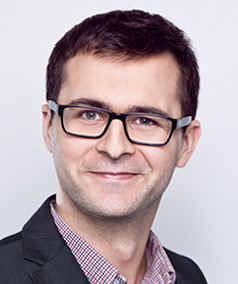
During the third Empirical micro session Wojciech Hardy gave a presentation on the topic of pre-premiere TV series file-sharing and its effect on subsequent TV viewership. In his research he studies what happened after four episodes of a popular TV show (Game of Thrones) were leaked to the file-sharing networks before they were aired on TV. Using a unique dataset compiled for the study, he shows that the leak significantly affected the subsequent TV viewership of Game of Thrones and also might have carried spillover effects for other TV shows. He argues that the leak constituted a one-time incentive for the viewers to switch to unauthorized sources and that some of them continued to use them for more than just the four leaked episodes. His findings so far are preliminary and due to be extended.
Heterogeneity of the Fuel Poor in Poland – Quantification and Policy Implications
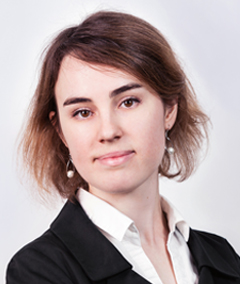
Katarzyna Sałach presented a joint work with Maciej Lis and Konstancja Ziółkowska on fuel poverty in Poland (article). Her talk focused on the heterogeneity of the fuel poor households in Poland, identified on the basis of cluster analysis. Fuel poverty measured with the affordability measure (LIHC – Low Income High Costs) concerns mainly lower-income families with children, living in large houses in rural areas. The subjective measure (lack of thermal comfort indoors) points to energy deprivation in city households occupying dwellings in pre-war tenement houses and poor rural inhabitants living in old, run-down houses.
Optimal RES Differentiation Under Technological Uncertainty
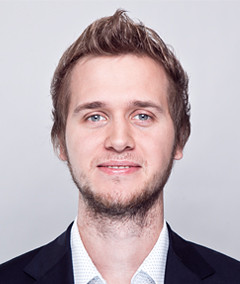
Jakub Sawulski presented the results of research conducted together with Jan Witajewski-Baltvilks. He set up the following research question: Should governments support the development of a wide range of different Renewable Energy Sources (RES) or instead focus on supporting a selected few? His model allows uncertainty to enter the cost function in two ways: as (i) an uncertain magnitude of the learning by doing effect and as (ii) a possibility for an exogenous random technological shock. He finds that the uncertainty on the learning rates increases the benefits of differentiation. On the other hand, in the presence of uncertainty due to exogenous shocks the planner has less incentive to support different technologies and more incentive to favour the cheapest technology at the given moment. He recommends that the countries with potentially large learning effects – such as the countries at the technological frontier – should increase differentiation and the peripheral countries should limit it.
Optimal RES Differentiation Under Technological Uncertainty

Jan Witajewski-Baltvilks presented his article, which he coauthored with Carolyn Fischer from Resources for the Future. The paper demonstrates that a switch from developing dirty (e.g. CO2-intensive) technologies in one region could induce a similar switch in all other regions of the world . Consequently, a unilateral policy of one region can lead to the decarbonisation of the global economy. The argument is built on the formal analytical general equilibrium model which is based on the framework of Directed Technological Change by Daron Acemoglu (MIT).
Jan Witajewski-Baltvilks also took part in a panel discussion entitled “Innovation performance of Polish economy”. He presented the results of research about green technologies for Polish energy sector.
***
Detailed program – see
WIEM 2017 website – visit
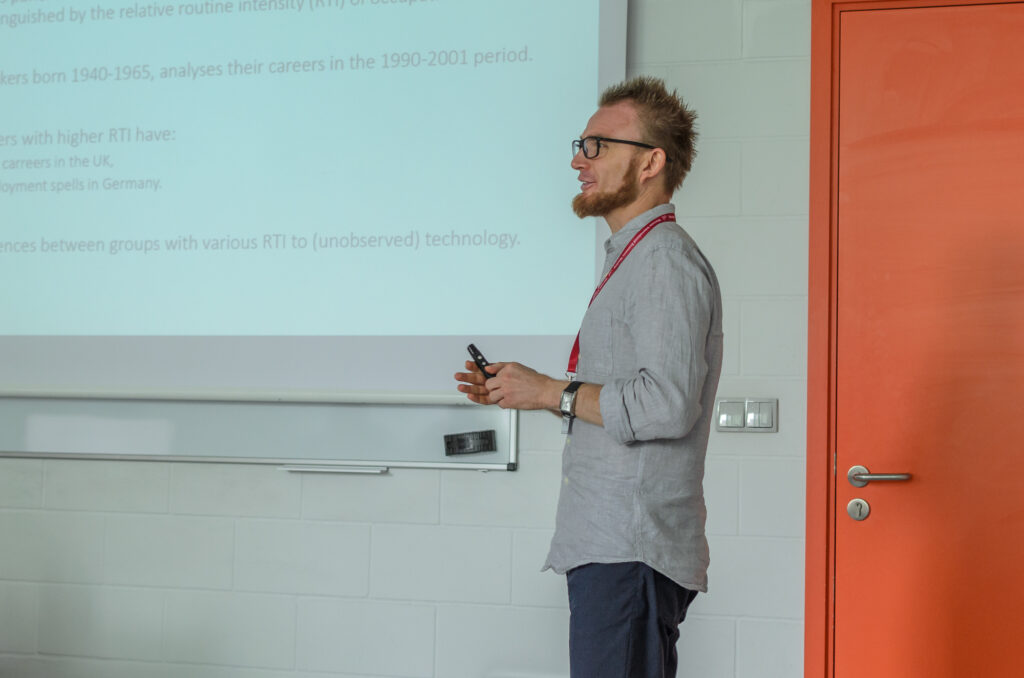
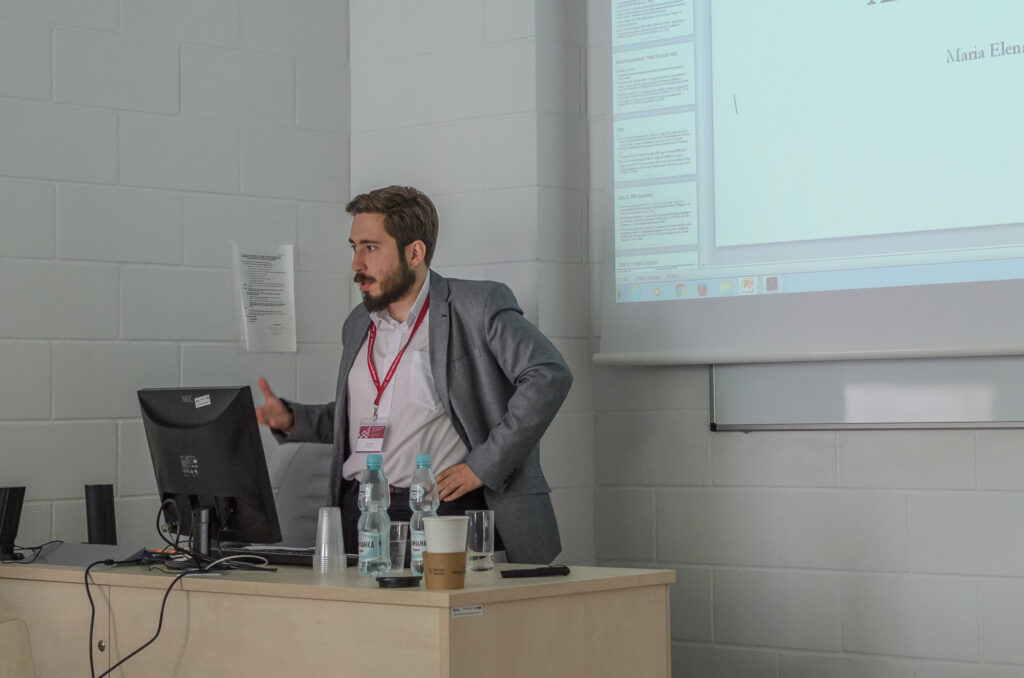
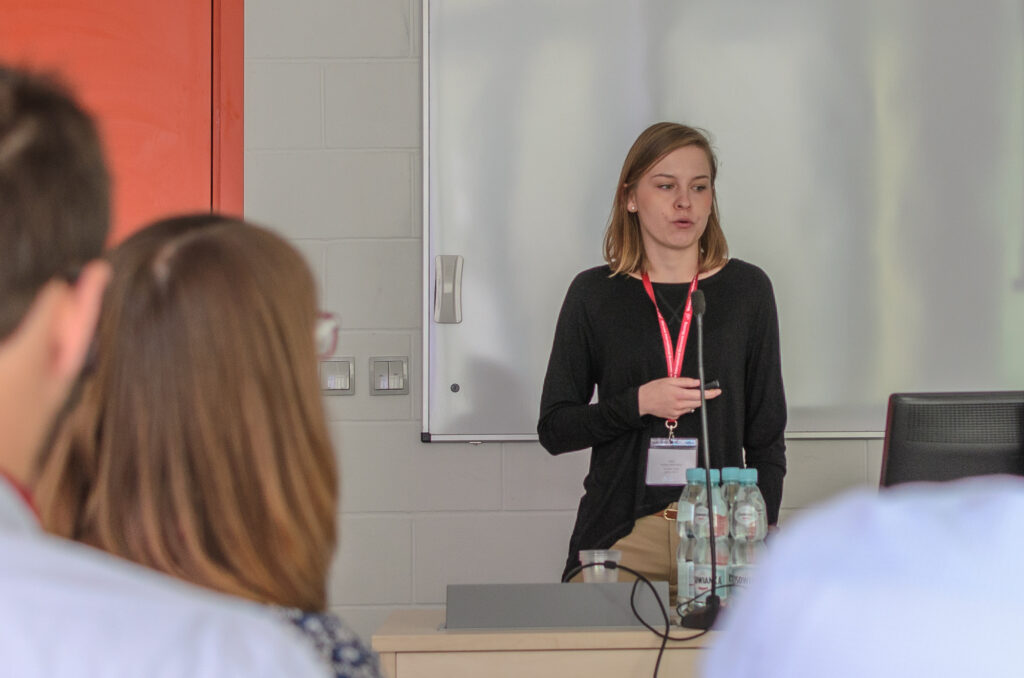
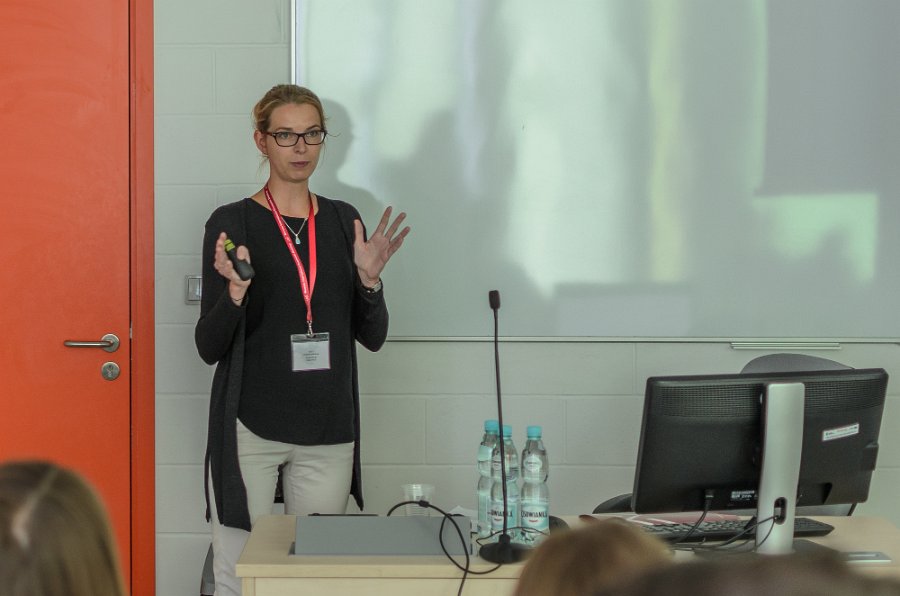
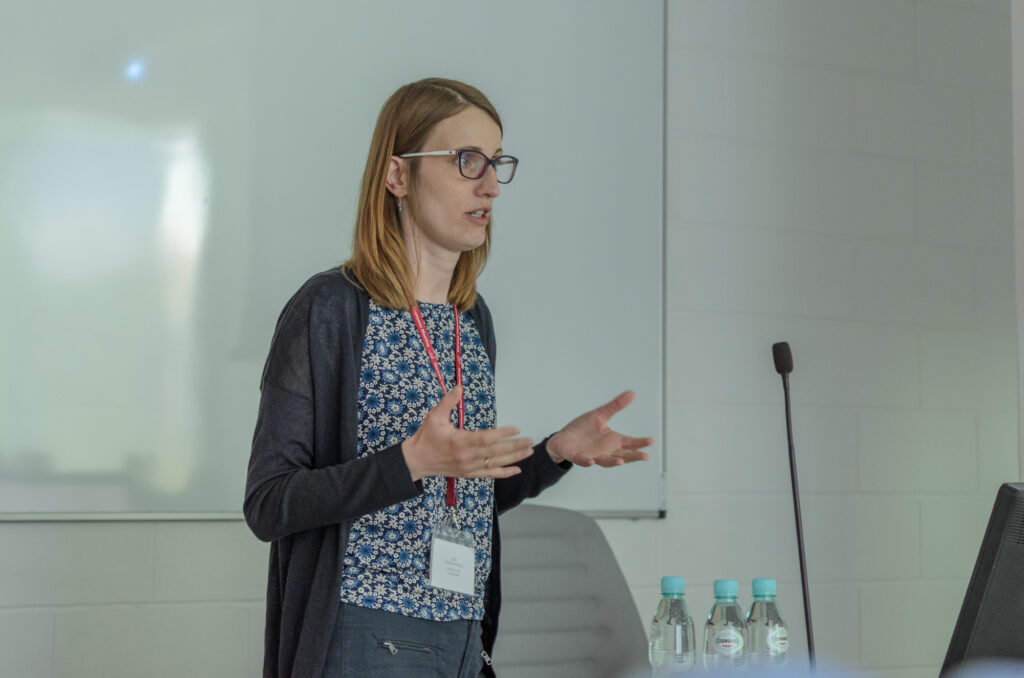
zdjęcia: Leszek Wincenciak
więcej zdjęć-> link
ekonomiści IBS & am
